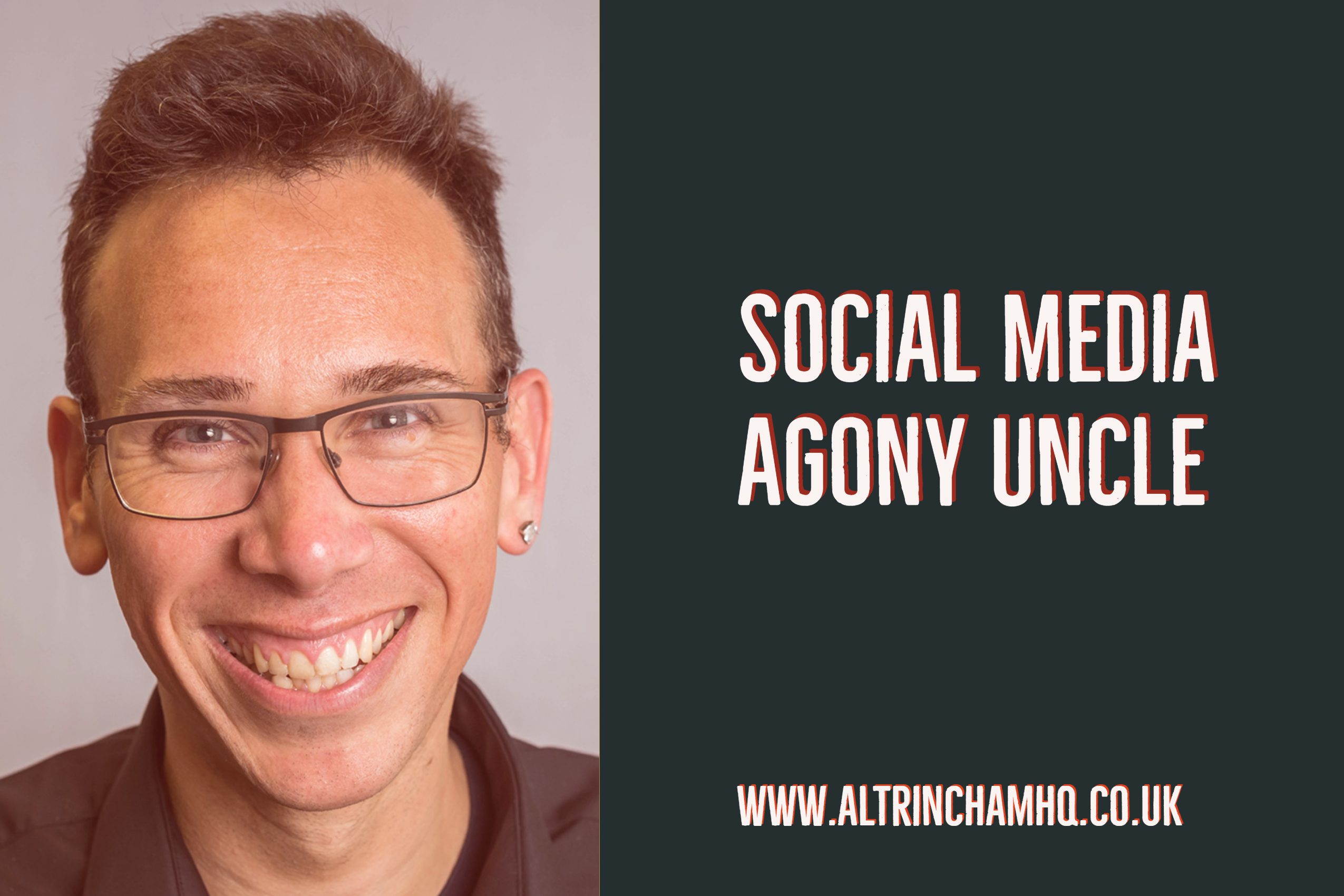
Dear Alex,
Hi there – I have just finished at **** studying Media, Culture & Communication. I’m currently looking for employment and was wondering if you would be able to provide me with some experience/guidance or any other help! Anything you can offer would be very appreciated. My degree has been really varied, it has allowed me to complete modules in Digital Writing, PR, Public Communications, Media Policy & Regulation, Professional Writing etc. so my skills are pretty transferable!
Many thanks, *******
Thanks for asking
We often get this question so thanks for reaching out to someone in your industry who can give you some genuine advice
I’ll be honest with you from the outset – I left education and started working for myself straight away as it was the glory days of 1999 when the internet was in it’s infancy and you could do stuff like that. The marketing industry you’re looking to move into now is more competitive than ever before and it’s what you do outside of qualifications and education that will set you apart
Hopefully this advice will make you stand out
1. Set up a LinkedIn Profile and Get Recommendations For Your Relevant Work Experience
I’m making some presumptions here that from A Levels to University you have had some work experience or intern placements over the past few years
And when you did these placements your manager at the time praised you for your work and said we’d love to have you back again
That’s great – but unless you get it written down it means nothing
Make sure your LinkedIn profile is up to date and have a “Professional” looking profile photo on it – not necessarily paying a photographer, but one that clearly shows your face and isn’t from a party, holiday or prom
Then connect with all the people who managed you during work experience
Request a recommendation from them (it’s on the … more tab at the top of their profile once you’ve connected – and you might need to remind them about the work experience if it was a few years ago)
Once you’ve done this and got a number of recommendations start connecting with people in the industry that you want to work with and take the extra step of commenting on their posts
I know LinkedIn isn’t seen as the most fun platform for someone in their early 20’s – but it’s the one that will build your career
2. Build your own website (or get a friend to)
People are either going to find you on social media or a website
Control your own space and set up your own blog / website / podcast
The website could be about you i.e first name + last name .co.uk or you could set up a website about your passion like I did with music in 1999
The key here is to show you have initiative and are consistent with producing content
And long term you never know where it will go
I published my 1st ever blog in June 1999, it got 17 readers. I could have given up there and then, but within months my website had 10,000 readers a week. My most read blog was read by over 500,000 people and I then got paid to write internationally for the likes of the BBC and publications across the UK and America
With WordPress, either you or a web designer friend can set up a website that looks professional and the cost of your domain name and monthly hosting can be as low as the cost of 1-2 coffees a week
3. Start Building Strong Case Studies and Portfolios
You probably have a relative who runs a small business or who works for a very small charity
If they have non-existent / poor marketing, offer to help out
Be honest and say you’ve studied marketing theory and now you want to put the theory into practice
Be bold with your ideas and tell them how you could implement them over the next 3 months
Whilst doing this, document everything
– Screen grabs of before and after on social media growth and sales (analytics)
– Press coverage
– Blogs you’ve written for them
Build up a really strong case study of where they were before and how you helped them
There is a finite time you’ll be able to do this as you seek out a bigger role
During this stage, plan for a handover in terms of making the suggestions they either take someone on or get an outsourced marketing company or training to take the work forward
… unless it goes so well that they have the budget to pay you full time
4. Network Your Face Off
There are 2 types of networking events
– Networking events for local businesses – those are the type I love, as my potential customers are there
– Networking events for industry – those I only go to if the speaker is great, but they have lots of industry contacts there
You want to go to the latter, as it will give you a chance to meet lots of people in the industry
The 1st time you go – you’ll be nervous as hell as you don’t know anyone (sometimes taking a friend from your course makes it less nerve wracking)
After you’ve gone to several – you’ll start to notice familiar faces and get to know people. That’s where opportunities arise
You can find a lot of these events just by searching Eventbrite or by seeing events people are sharing on LinkedIn
If you’re lucky there can be free food and drink at them (but on the latter – remember it’s a professional event so don’t be the drunk person in the room – set your limits)
5. Keep Applying Every Day For Jobs and Opportunities
You will get lots of rejections and lots of no replies
But keep at it
One of the most powerful things I did when I had quiet periods as a freelance journalist was to run with the idea
“Every single day I apply for at least one writing job”
Usually within 30 days an opportunity presented itself
I’ve been working in Social Media for 10+ years and Marketing for 20 years and i’ve worked with the BBC, NHS, Costa Coffee, United Utilities, Manchester City, Selfridges, Manchester Arndale, University Of Manchester, The Midland Hotel, NCS and countless huge names
And guess what? A small business with no marketing presence still rejects the idea of working with me
Rejection is something you get used to taking on the chin
6. Once You Get A Job – still expect training
Over the past 10 years I’ve trained everyone from graduates to experienced marketers
When you get your graduate role, the company that employees you should give you some form of training as part of your onboarding experience
Whether that’s social media training like we offer or other forms of marketing training
The real world is very different from the world of education and often the feedback we get when forward-thinking companies train their new starters is “We weren’t taught half of that at University”
Hope all that helps – print this page out and stick on your wall as a reminder
Alex
PS. AND A QUESTION I KNOW MANY OF YOU WILL BE THINKING RIGHT NOW – CAN I HAVE A WORK EXPERIENCE PLACEMENT?
Like many marketing firms myself and the team of designers / marketers that work with us all work remotely
That means we work from home offices – so if you’re looking for a buzzing agency experience with 30 people in one office then we’re not the company for you
But if you’re looking for a remote work experience placement think about what you can offer
Look at our social media profiles 1st to see what we post and if you have an idea that you think sits with that / something we can do better email us on alex@altrinchamhq.co.uk and we can talk about that as a work experience project
We’re always happy to provide testimonials on your LinkedIn profile once the project is over
We often work with the following sectors
– Hospitality
– Professional Services
– Charities
– Tradesmen
Areas they often struggle serving us with are
– Photos
– Blogs
– Videos

